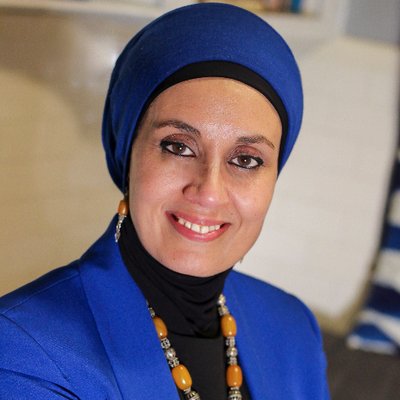
Debbie Almontaser
ScholarDr. Debbie Almontaser is an internationally recognized, award-winning educator, speaker and authority on cross cultural understanding. She is an influential community leader and the Founder and CEO of Bridging Cultures Group, Inc.
Dr. Almontaser was the founding and former principal of the Khalil Gibran International Academy in Brooklyn, NY. A twenty-five year veteran of the NYC Public School System, she taught special education, inclusion, trained teachers in literacy, and served as a multicultural specialist and diversity advisor. Currently, she is the Board President of the Muslim Community Network (www.mcnny.org). She frequently lectures, serves on panels, and facilitates teacher and public workshops on cultural diversity, conflict resolution, Arab Culture, Islam, Muslims in America, interfaith coalition building and youth leadership at schools, universities, libraries, museums, faith-based organizations, churches, synagogues, as well as national and international conferences.
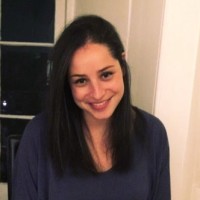
Jae Aron
CuratorJae Aron is TIME’S UP’s lead storyteller on advocacy, campaigns, and corporate change strategies. Based in Washington, D.C., Jae helps provide strategic direction for the organization’s evolving PR needs and advocacy work. She also supports TIME’S UP’s internal communications and ensures that the external messaging across TIME’S UP’s vast network of spokespersons and allies is aligned.
Jae was first introduced to the frank community as a communications strategist at Spitfire Strategies, where she worked with nonprofits, foundations, and grassroots leaders to drive social change. She holds a B.A. in American Studies from Wesleyan University and a Masters in Politics and Communication from the London School of Economics.
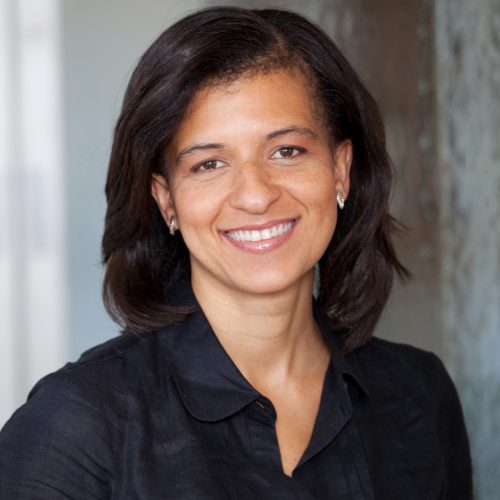
Edith Asibey
Advocate and Behavior DesignerEdith is an advocacy and communication strategist, behavior designer, and Tiny Habits® Coach who has honed her skills leading global organizations dedicated to solving the most pressing challenges of our time. Multicultural since birth, Edith has lived and worked in several countries and is fluent in four languages. She has been recognized for running effective campaigns in a variety of cultural settings.
Edith leads Asibey Consulting, a firm that partners with nonprofits, foundations, humanitarian organizations, and socially responsible companies that want to drastically improve how they take audiences from intention to action. She teaches a digital strategies graduate course at New York University, and is the author of several articles and two popular “how-to” guides.
During her time as a humanitarian worker with UNICEF, Edith was stationed in Brazil when the country hosted the 2014 FIFA World Cup, the 2016 Olympic and Paralympic Games in Rio de Janeiro, and during the Zika virus epidemic, also in 2016. In response, she and her teams designed cutting-edge digital engagement strategies that successfully mobilized millions of people in over 150 countries in support of children’s rights.
Edith also brought strategic thinking to her role as Chief Communications Officer at The Atlantic Philanthropies in New York, the largest limited-life foundation in the world, which invested $8 billion to advance opportunity and promote equity and dignity before it completed grant making in 2016.
Edith holds a Bachelor of Science in Biology and a Bachelor of Education both from the University of Sao Paulo in Brazil; a Master of Arts in Media Studies from Stanford; and a specialization in Leadership from the Harvard Kennedy School of Government.
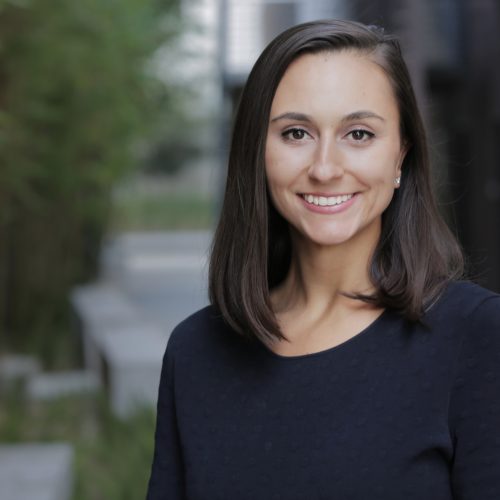
Heriselda Begaj
Senior Manager, Participant MediaHeriselda oversees impact campaigns at Participant Media where she works across sectors with non-profits, multinational companies, government agencies, foundations and others to raise awareness and mobilize viewers around film and episodic content. She’s currently leading the campaign for AMERICAN FACTORY, a documentary produced by Participant and the first project out of Higher Ground, President and Mrs. Obama’s production company, to ignite a conversation around a more equitable future of work. Her previous campaign work includes Alfonso Cuarón’s ROMA, which helped to create conditions to accelerate change for domestic workers in Mexico and in the U.S., and Ai Weiwei’s HUMAN FLOW, which built awareness around the global refugee crisis. Heriselda holds a B.A. in Political Science and an M.I.A. in Economic Development, both from Columbia University.
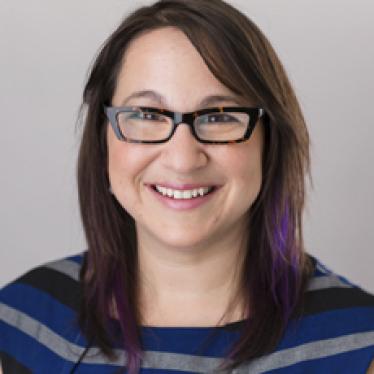
Liba Beyer
Policy Advocate and ActivistAs Director, Global Campaign, Liba Beyer launched Human Rights Watch’s first ever campaigns unit. She develops global, national, and local advocacy campaigns for public engagement to advance policy goals and promote human rights values. Beyer oversees a range of public engagement and media initiatives including a Persuasion Lab, strategic partnerships and social targeting for HRW. She previously served as the organization’s senior director of public advocacy, engaging donors and the public in advocacy campaigns and serving as the point person for supporters in more than 20 cities to engage with programmatic work. Beyer developed and led the donor trip program, produced hundreds of international special events, led dozens of human rights defender tours, as well as opened Human Rights Watch’s Midwestern and Canadian offices.
Beyer received her MPA from New York University’s Wagner School of Public Service and worked extensively in the field, consulting on organizational strategic management, fundraising, impact evaluation and human rights research in Rwanda, Indonesia, Thailand, Israel, and the Occupied Territories. Beyer previously worked at the United Nations Association, the Hillel Foundation, and the 9/11 Disaster Relief Fund.
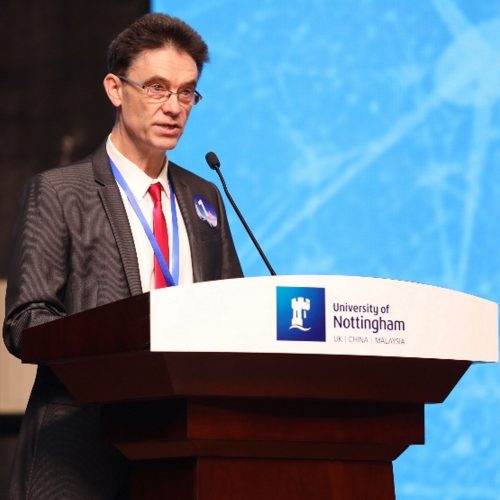
Keith Bound, Ph.D.
ScholarKeith Bound started his narrative design and audience engagement research consultancy Receptive Cinema in 2016. His company specialises in the construction of suspense and science of storytelling to optimise cognition, emotion and engagement in movies and episodic television drama. He applies his scientific model of audience engagement to validate creative storytelling decisions to deepen engagement and audience experience consistently. In 2018 he developed a research collaboration with the Future Media Convergence Institute (a subsidiary to China’s state News agency, Xinhuanet) to create a research proposal that will shape cinematic storytelling for 21st century across digital devices.
Since 2013 Keith has presented his research in fear, suspense and science of storytelling at six international conferences in USA and Europe. He has written numerous articles about suspense, fear and science of storytelling for a variety of social media platforms including Hammer Films, a famous horror film production company based in the UK. His interviews about his research have been broadcast on ABC Australia, Radio New Zealand, BBC 5 Live and BBC Nottingham, UK. Keith received his interdisciplinary PhD (film studies, media psychology, psychophysiology and computer science) from the University of Nottingham, UK in 2016. His dissertation, ‘Terror & tension’ psychophysiological suspense: defining a framework to measure cinematic suspense in 21st century horror films led to the development of a scientific model of suspense and engagement that comprise of three layers: rhythm of emotion, rhythm of suspense and rhythm of engagement. The model is used in two ways, first to identify filmmakers’ narrative blind spots that decrease engagement and secondly to validate creative storytelling decisions to deepen engagement.
As an innovative narrative designer, his bio-feedback interactive movie concept eMovie was selected as a finalist in the Cisco i-prize Global Innovation Competition 2010. In 2009 he exhibited his interactive film installation: Receptive Cinema at ThinkTank, Birmingham Science Museum, UK. This practice-led research project, investigated complex issues concerning interactive film, narrative, human computer interaction and multi-video stream manipulation.
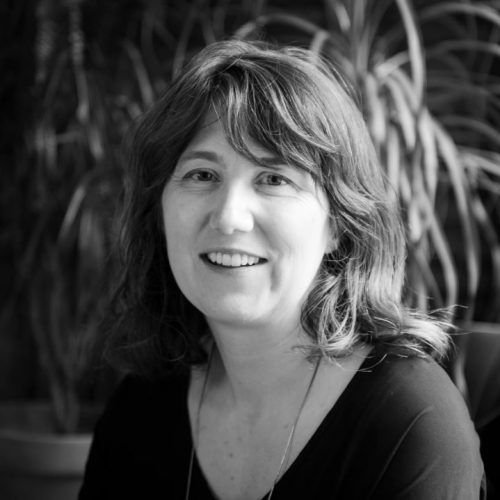
Rebecca Bray
Managing Director, Center for Artistic ActivismRebecca Bray marries her expertise in technology and art with her passion for social and environmental justice in her work directing strategy and operations for the Center for Artistic Activism (C4AA.org). C4AA works around the world to help activists, artists and others win campaigns through innovation, surprise, and bringing utopic ideas into reality.
Bray realized the power of mashing up pop culture, creativity, weirdness, and activism in 2003 when she co-produced “The Meatrix”, the viral anti-factory farming, animated video. Bray was the Chief of Experience Design and Evaluation at the Smithsonian Institution’s National Museum of Natural History and co-founder of Submersible Design, a New York City-based interactive design company. She is an artist whose multidisciplinary installation and performance-based work focuses on transformative social experiences and behavior change.
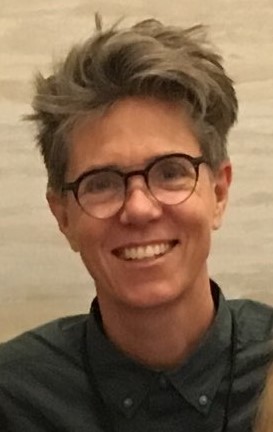
Kendal Broad Ph. D.
ScholarK.L Broad has a Ph.D. in Sociology (1998) from Washington State University and is currently an Associate Professor in the Center for Women’s Studies and Gender Research at the University of Florida. In general, Dr. Broad’s work focuses on the interpretive and identity work associated with social movements. Specifically, Dr. Broad’s work has centered on Lesbian, Gay, Bisexual, Transgender, & Queer (LGBTQ) movements in the US, paying particular attention to hate crime campaigns, transgender activism and work by “straight” allies. Presently Dr. Broad is conducting research about anti-racist interpretive and identity work by a group of gay men.
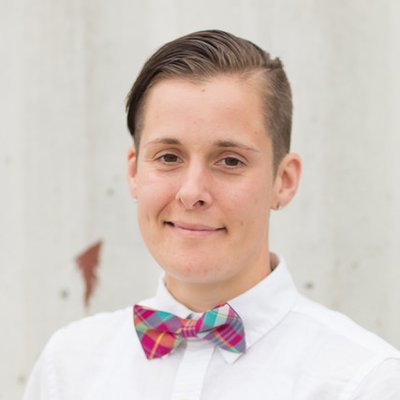
Erica Ciszek
Erica Ciszek is an Assistant Professor at the School of Advertising & Public Relations at The University of Texas at Austin. Their research explores the intersections of strategic communication, activism and social change to challenge the field to think more complexly about the relationship between power and resistance. They engage in theoretically and empirically rigorous work, engaging dialogically with hard-to-reach populations and hard-to-study groups, groups that are marginalized and vulnerable and difficult to represent. Ciszek’s research has been published in the top journals in the communication, including the New Media & Society, Journal of Communication, Social Media & Society, as well as advocacy journals such as the Journal of Public Interest Communication and Journal of Homosexuality.
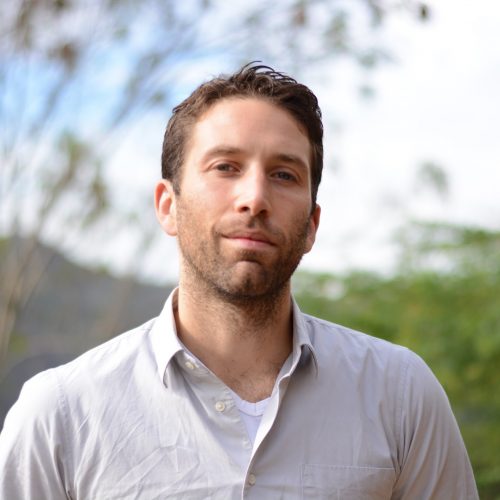
Thomas Coombes
Human Rights Strategist and Communications ExpertThomas Coombes is a human rights strategist and communications expert from Ireland. He founded his own consultancy called hope-based communications in July 2019 to help non-profits communicate as effectively as companies and governments, with a particular focus on using integrated comms strategies and digital marketing to change narratives.
Thomas has spent 15 years working in public relations, speechwriting and branding for big global organizations: Amnesty International, Transparency International, the European Commission.
Thomas grew up in the west of Ireland but is a citizen of the world. He holds Irish, French and British nationality, has a Dutch partner and lives in Berlin. He has lived and worked all over Europe and speaks six languages. He sits on the board of two UK human rights groups – Rene Cassin and Rights Watch UK. When he isn’t thinking about how to reframe human rights, he spends his time blogging about world literature and triathlon-training.
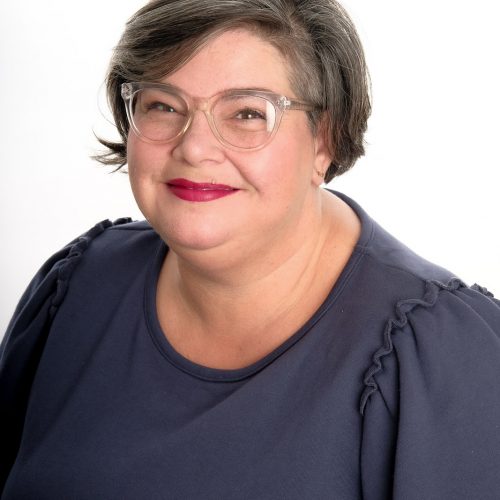
Amanda Cooper
StrategistAmanda is passionate about solid strategy, meaningful messages and the allure of alliteration. She takes pride in helping her clients reach new heights, whether it’s winning a national contest, nailing a one on one interview, or any other achievement in communication or social justice.
Amanda comes to consulting with more than fifteen years of experience working with organizations in labor, legal rights, children’s services and food insecurity. She has placed thousands of stories in every medium of the mainstream press and created buzz for her campaigns in social and progressive media. She has used the latest opinion data to create media strategies, messages and even picket signs and chants with broader appeal. She revolutionized the training of worker spokespeople, bringing them inside the strategy so that they became more focused, passionate and effective. She is proud to have extraordinary organizations like Forward Together, Welcoming America, and the Ella Baker Center for Human Rights as repeat clients.
Amanda serves on the Board of Directors of the Guttmacher Institute, which advances sexual and reproductive health worldwide, and is the co-founder of the Alameda Know Your Rights committee which trains people with citizenship privilege to assist immigrants in the event of an ICE raid. Amanda is also a proud member of the Radical Communicators (RadComms) community, and the founder of the NYC Progressive Public Relations Professionals.
She lives and Jazzercises on the municipal island of Alameda, CA, with her husband and daughter who bring her endless joy.
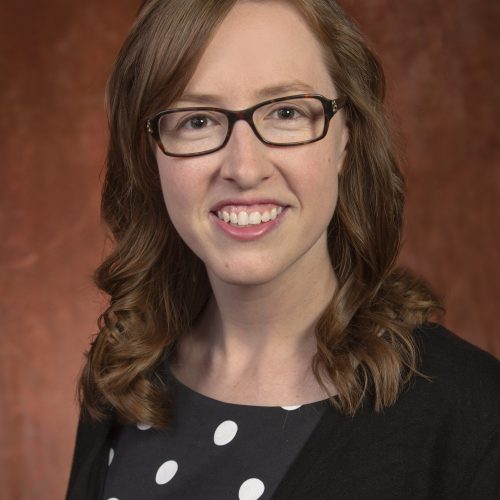
Katherine Dale
ResearcherKatherine R. Dale (Ph.D., The Ohio State University) is an assistant professor at Florida State University. Her main research interests include positive media psychology and intergroup interaction. She is particularly interested in how media affect the way we see and experience the world.
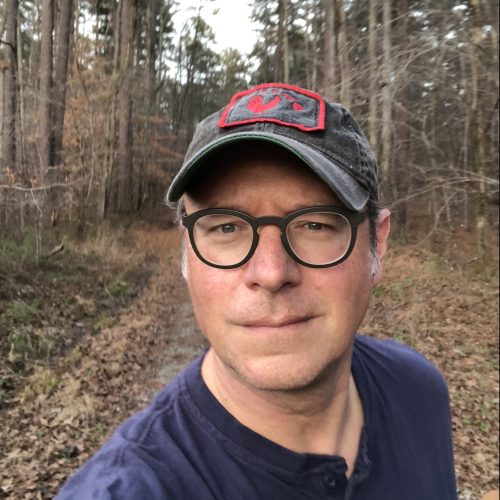
Mark Dessauer
PractitionerMark Dessauer thrives on seeing change happen, specifically when organizations use communications effectively to change lives and our communities. While Mark’s experience ranges from developing the national conversation on community responses to childhood obesity to leading a monthly walk and bike to school, he is passionate about working with partnerships, grantees and organizations to use strategic communications to increase their impact. Mark is responsible for Spitfire Strategies’ learning and capacity building tools and training for organizations as well as providing strategic communication for clients.
Over the past three years at Spitfire, Mark has worked with early childhood advocates to develop a messaging framework and trainings for Adverse Childhood Experiences on behalf of the Kresge and Doris Duke Charitable Foundation, provided communication counsel and training to RWJF communities working to Mobilizing Action for Resilient Communities (MARC) and established a national nonprofit strategic communication training for JP Morgan Chase’s Office of Nonprofit Engagement in 25 major cities across the country.
Mark is committed to community change outside of the day job and works to make Durham more walkable, bikeable and healthier for all residents. He co-founded the Bull City Open Streets (North Carolina’s first open streets event in 2010), helped start the Bike Durham coalition and Durham Bicycle Boulevards, assists Congregations, Associations and Neighborhoods (CAN) in finding more opportunities for biking and walking in Durham. He also helped establish and develop the Durham Public Schools Hub Farm – a 30-acre farm and wilderness area where students, teachers and the community grow and harvest healthy food; hike, bike, and explore nature and the food system. In his spare time Mark is working on more being and less doing.
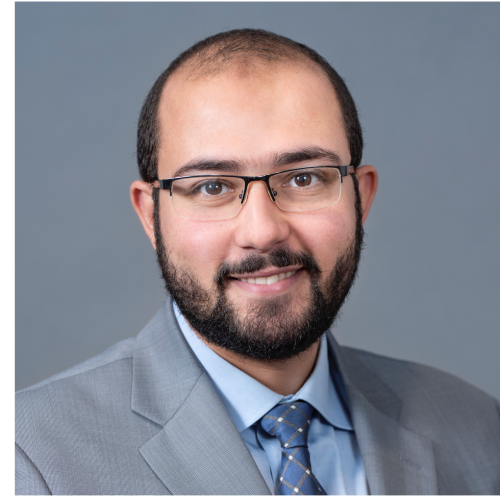
Kareem Emara
ActivistKareem is an Egyptian activist and one of the leaders of the Arab Spring in 2011. Kareem’s leadership experience was mainly through the student movement that thrived after the Arab Spring and was elected as spokesperson of the Student Union. Kareem participated in writing the legislation regulating public higher education in Egypt and in crafting the Egyptian Constitution.
Kareem received his medical degree from the prestigious Cairo University Medical School in 2014. He received the MEPI fellowship for Tomorrow Leaders from the US Department of States in 2015 where he studied conflict resolution and democratic institution. He, also, research on political participation and international relations at the Middle East Initiative at Harvard University.
Kareem is currently pursuing a Master’s degree in Public Policy from Harvard Kennedy School.
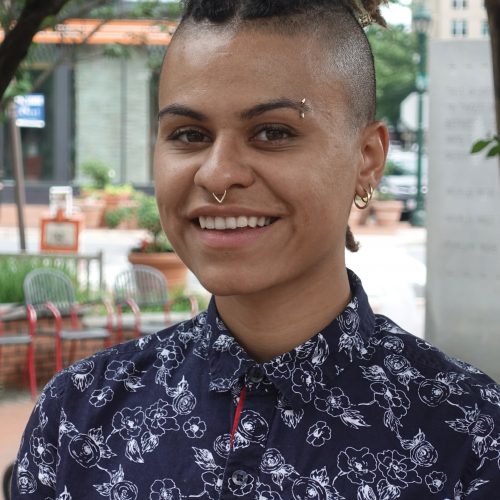
Key Estime
Karel FellowKey Estime is a Jack Kent Cooke Scholar studying anthropology at Mount Holyoke College. As a first-generation, low-income, queer student of color, Key is deeply committed to building youth leadership and intergenerational collaboration. They are a youth leader at the Railroad Street Youth Project (RSYP), a small non-profit that helps youth transition into adulthood. As a youth leader, Key is responsible for mentoring ten students. They’ve also designed a new curriculum around empowerment and founded a 20K scholarship program to help high school students attend college. This past summer Key was a Karel Fellow. As a Fellow, they interned at Martha’s Table, a nonprofit that supports strong children, families and communities by increasing access to quality education programs, healthy food and family supports. When they are not bustling around networking, Key loves to hang out with friends, sprawl across the floor, and dream of a utopia filled with painless belonging and community.
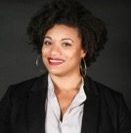
Chelsea G. Fuller
Senior Communications ManagerA native of Ashtabula, Ohio, Chelsea Fuller is a multiplatform journalist and communications strategist currently working at Blackbird. As Blackbird’s Senior Communications Manager, Chelsea supervises the accounts of various clients, including The ‘me too.’ Movement and the Movement for Black Lives (M4BL), a coalition of more than 30 organizations committed to fighting for equality and justice for Black people. Aside from these responsibilities, she provides high-level rapid response and crisis communications support to organizations and communities across the country in moments of unrest, particularly those centering the state-sanctioned killings of Black people. Chelsea has successfully provided communications support to organizations including Black Lives Matter, the Dream Defenders, the Organization for Black Struggle, Workers Center for Racial Justice, Baltimore BLOC and BYP100 in the aftermath of the deaths of Michael Brown Jr., Tamir Rice, Alton Sterling, Freddie Gray, Keith Scott and others.
Prior to joining Blackbird, Chelsea worked at the Advancement Project, one of the nation’s leading civil rights and racial justice organizations. As the Senior Communications Associate for Youth Criminalization, Chelsea led the Youth Criminalization initiative focused on monitoring and shifting harmful narratives pertaining to our nation’s youth of color through grassroots campaigns and national interventions. She also led the organization’s groundbreaking research on the way youth of color are criminalized through biased newsroom and editorial policies. During her time at Advancement Project, Chelsea was a field producer for the EPIX docu-series “America Divided,” working with actor and activist Jesse Williams to highlight the vast educational inequities in Pinellas County, Fla.
Before her time at Advancement Project, Chelsea was an Alfred Fleishman Diversity Fellow at FleishmanHillard International Communications in Washington, D.C., where she was a member of the Public Affairs team servicing clients like the Clinton Global Initiative, the United Nations Foundation and GM. Chelsea holds a Bachelor of Arts degree in News Editorial Journalism and Africana studies from West Virginia University, and a Masters of Arts in Strategic Communications and Social Justice Advocacy from American University.
Chelsea previously worked as a reporter, columnist and copy editor at The Dominion Post in Morgantown, WV, and was editor-in-chief of The Urban Outlook, an online publication focused on news and issues affecting the nation’s underrepresented populations. She is a regular contributor on issues of race, culture and justice for The Root and the Huffington Post, and is the Co-chair of the National Association of Black Journalists’ Young Journalist Task Force.
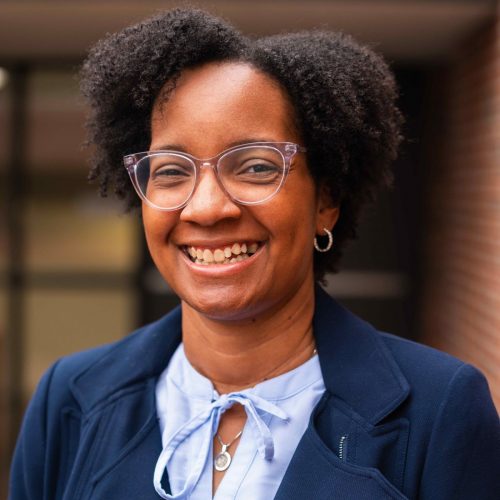
Rachel Grant
ScholarGrant previously served as an assistant professor in Xavier University of Louisiana’s Mass Communication Department teaching classes in strategic communication, social media management and media law.
Her academic research looks at media studies of race, gender and class and she has conducted extensive research with social movements, social justice, and Black feminism. Her dissertation focused on Black female journalists advocating for Black women during the Cold War period, specifically the Rosa Lee Ingram case.
She is currently conducting a study that explores the media discourse of historic, national symbols and the continuation of systemic racism and oppression. She has been published in peer-reviewed journals such as Celebrity Studies and Southwest Education Council for Journalism and Mass Communication Journal.
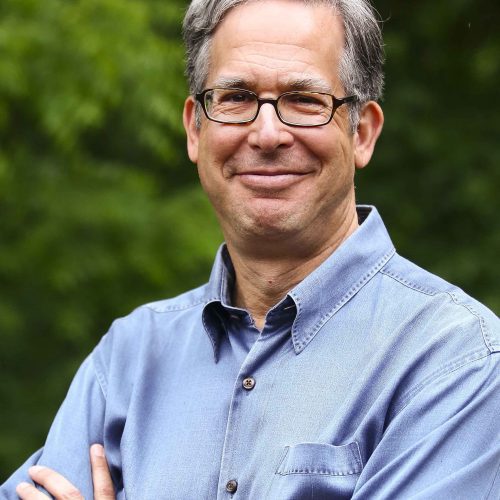
Andy Goodman
Director of "The Goodman Center"Andy Goodman is co-founder and director of The Goodman Center, which
teaches communications and marketing professionals how to reach more
people with more impact. Along with Storytelling as Best Practice, he is author
of Why Bad Ads Happen to Good Causes and Why Bad Presentations Happen
to Good Causes. He also publishes a monthly journal, free-range thinking, to
share best practices in the field of public interest communications.
Andy is internationally known for his speeches and workshops on storytelling
and has led over 500 trainings for clients including CARE, The Nature
Conservancy, Boys and Girls Clubs of America, NOAA, the San Diego Zoo,
MIT, Princeton, the Bill and Melinda Gates Foundation, the Robert Wood
Johnson Foundation, GE, Bank of America, and many others.
He has designed communications curriculum for the College for Social
Innovation in Boston as well as for the African Leadership University in
Mauritius. When not teaching, traveling, or recovering from teaching and
traveling, Andy serves on the advisory board of the Institute for Human
Caring.
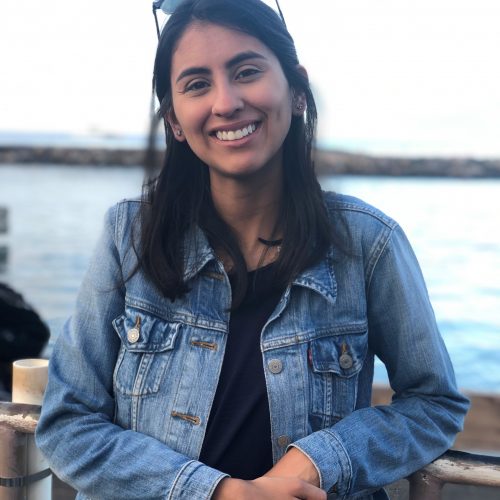
Luisa Guaracao
PractitionerLuisa is a senior coordinator at Burness. She started off as an intern in 2017 and was hired full-time 6 months later. Half of Luisa’s time is spent managing the Frank Karel Fellowship, a summer program that matches first-generation and/or minority college students with leading nonprofits in the D.C. area. A former Karel Fellow herself, Luisa was invited to speak atfrank in 2018 about her experience as a Fellow.
The other half of Luisa’s time is spent working with clients, like the Robert Wood Johnson Foundation, Voices for Healthy Kids and ChangeLab Solutions, to elevate and advance issues related to children’s health. Luisa helps clients with their messaging, media pitching, policymaker outreach, project management and event planning needs.
Prior to joining Burness, Luisa interned at Fleishman Hillard, The Leadership Conference on Civil and Human Rights and the Miami Herald. She graduated from the University of Florida with a dual degree in public relations and Portuguese. Luisa spends most of her spare time (and money) flying back and forth between Miami, San Francisco, Colombia and Texas visiting family and friends.
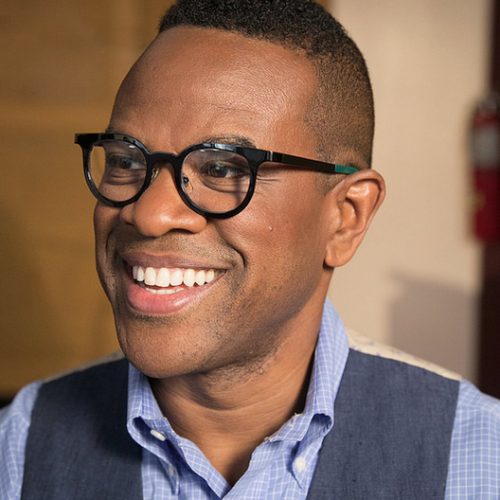
Thomas Allen Harris
FilmmakerThomas Allen Harris is a filmmaker and artist whose work across film, video, photography, and performance illuminates the human condition and the search for identity, family, and spirituality. Graduate of Harvard College and the Whitney Independent Study Program, member of the Academy of Motion Pictures Arts and Sciences, and published writer/curator, Harris lectures widely on the use of media as a tool for social change. He lectures and teaches on media arts, visual literacy, and personal archiving at such institutions as Yale, Dartmouth, University of California, and many others.
His deeply personal films – VINTAGE- Families of Value (1995), É Minha Cara/That’s My Face (2001), and The Twelve Disciples of Nelson Mandela (2005), have received critical acclaim at international film festivals such as Sundance, Berlin, Toronto, FESPACO, Outfest, Flaherty, and Cape Town. His most recent feature film, Through a Lens Darkly: Black Photographers and the Emergence of a People (2014), which looks at the ways photographic representations serve as tools of representation and self-representation through history, was nominated for both an Emmy and Peabody, and won over 7 international awards including the 2015 NAACP Image Award for Outstanding Documentary Film. His latest short film, About Face: The Evolution of a Black Producer (2017) had its premiere on World AIDS Day at the Whitney Museum of American Art and over 100 institutions worldwide as part of Visual AIDS’ 28th annual Day With(out) Art.
In 2009, Harris founded Digital Diaspora Family Reunion, LLC (DDFR) a social engaged transmedia project that has incorporated community organizing, performance, virtual gathering spaces, and storytelling into over 45 unique audio-visual events in over 30 cities. With this project, Harris has toured nationally and internationally, most recently as a Montgomery Fellow at Dartmouth College and at the Yale University Afro American Cultural Center, to invite individuals to explore and share the rich and revealing narratives found within their family photo albums. To date, DDFR has brought over 3000 people together in live events and gathered in excess of 30,000 images, sharing content through social media, television, articles, newspapers, and radio to receive over 70 million impressions worldwide. Harris is bringing DDFR to national TV with Family Pictures USA.
His work has been supported by the Ford Foundation, National Endowment for the Arts, Andy Warhol Foundation for the Visual Arts, Sundance Institute, Tribeca Film Institute, The Fledgling Fund, Rockefeller Foundation, Corporation for Public Broadcasting, Nathan Cummings Foundation, New York State Council on the Arts, Creative Time Inc., and the Banff Centre.
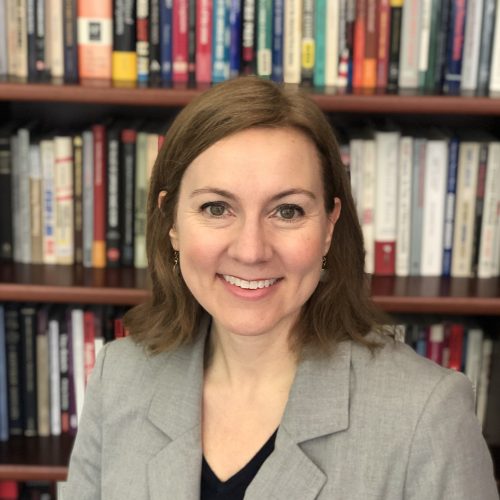
Jennifer Hudson
ResearcherJennifer Hudson is Professor of Political Behaviour and Head of Department of Political Science and the School of Public Policy at University College London. Professor Hudson is Director of the Development Engagement Lab (DEL), a five-year study of public attitudes and engagement with global development in France, Germany, Great Britain, and the U.S., funded by the Bill & Melinda Gates Foundation. Through her work with the Aid Attitudes Tracker (2013-18) and DEL, she has established an international reputation for academically rigorous, insight driven research. Working in partnership with development INGOs (Oxfam, Save the Children, Water Aid, ONE), the UK Department for International Development, and Agence Française de Développment, she has developed evidence and insights to enable communicators and campaigners to build public support for development. She received her PhD from University of California Riverside and has published on a wide range of topics analyzing elite and mass political behavior. Her research has appeared in American Politics Research, British Journal of Political Science, Party Politics, Electoral Studies, Journal of Experimental Political Science, and Political Studies.
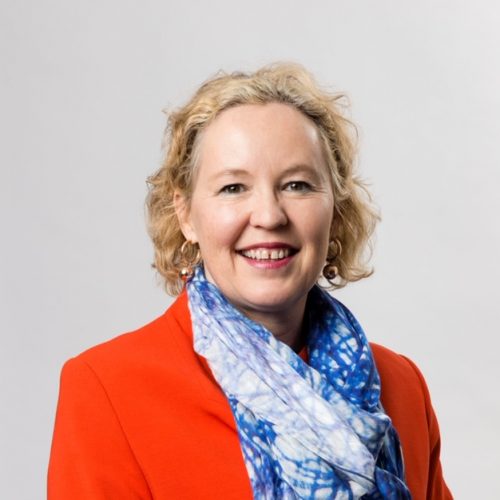
Gabrielle Huria
Ngāi TahuGabrielle Huria MNZM comes from a Māori community in the South Island of New Zealand. The Ngāi Tahu story is one of extraordinary success. As an indigenous people whose lands and economy had been taken in the 19th and 20th century Ngāi Tahu has risen again on the South Island landscape. Today the tribe is one of the biggest entities in the South Island, employing many New Zealanders across a range of industries from fishing, property development to tourism and farming. As well as being commercially successful Ngāi Tahu also runs a large tribal development programme.
Gabrielle lives on her tribal lands outside of Christchurch and her people’s story is one of strength, resilience and generosity. She has held many roles within the tribe, developing the tribal brand and managing the communications strategy. She currently is working on the tribes freshwater strategy and holds several Director position including the Deputy Chair of the Canterbury District Health Board and Chair of Emerge Aotearoa – a national mental health organization.
In 2018 she was awarded the New Zealand Order of Merit for her services to Māori and governance and last year she was a recipient of the New Zealand Local Hero Award.
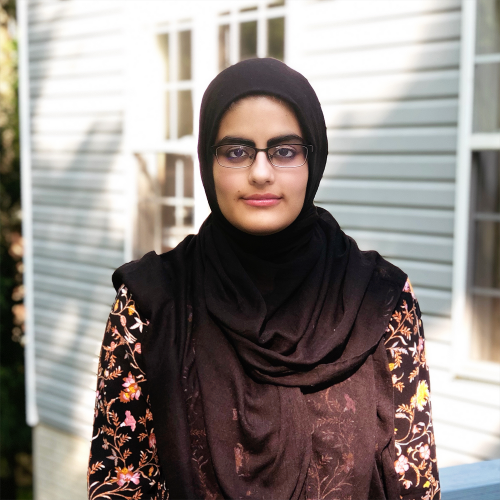
Maryam Iftikhar
Karel FellowMaryam Iftikhar is an honors student at Montgomery College studying social sciences. She was born in Pakistan but moved to the U.S. when she was one year old. Last Fall, she worked with students in Jordan on a sustainability project that sought to tackle challenges facing the global tourism industry. As the research leader, Maryam collaborated with a multi-disciplined research team, pulling insights from hospitality, economics, international relations and computer science, to develop a comprehensive solution to the assigned problem. Maryam is the president of her school’s Model UN Club and has planned and participated in collaborative panels and service-learning projects, on campus. This past summer Maryam was a Karel Fellow. As a Fellow, she interned at Families USA, a leading nonprofit and national voice for health care consumers that is dedicated to the achievement of high-quality, affordable health care.
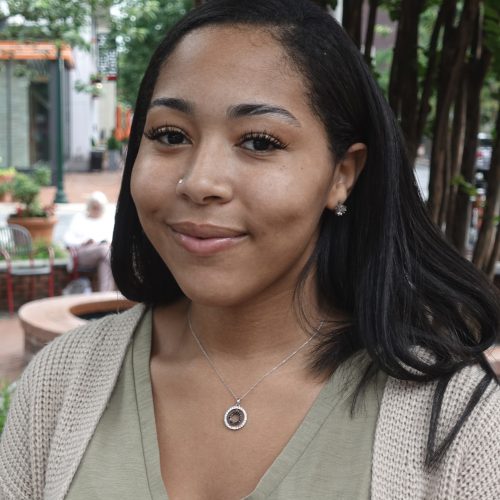
Camryn Jackson
Karel FellowCamryn Jackson is a Jack Kent Cooke Scholar studying journalism and sociology at Mercer University. As a contributing writer and reporter for her school’s TV station, Camryn has developed a strong interest in storytelling. She is captivated by the stories of civil and human rights defenders and hopes to one day tell those stories as a documentary journalist. Camryn is also a mentor to high school girls, facilitating tough conversations around sexual assault and harassment and offering advice about how to navigate college as a woman of color. This past summer Camryn was a Karel Fellow. As a Fellow, she interned at Mary’s Center, a nonprofit that provides medical, social and education services to families in the greater Washington D.C. area.
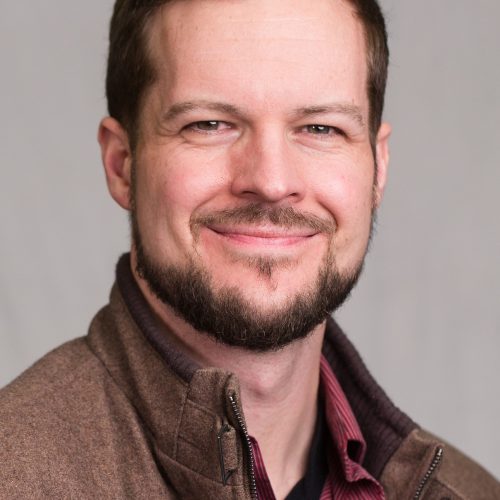
Gordon Kraft-Todd
Research Prize FinalistGordon is generally interested in how to encourage pro-social behavior using the cognitive mechanisms underlying the colloquial wisdom of “actions speak louder than words”, “practice what you preach”, and “lead by example.” Specifically, he investigates how the interaction of actor speech and behavior affects observer belief transmission and behavioral contagion using field experiments, behavioral research, and computational modelling. He received his B.A. with a self-designed major in Leadership from Harvard College in 2007, and his PhD from Yale University in 2019.
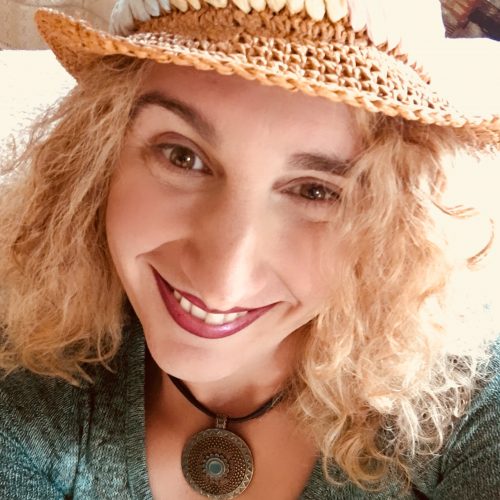
Chloé LaCasse
Activist and EducatorA storyteller and educator, Chloé came out as transgender in 2016. She would quickly find her voice while volunteering with trans peers and allies on the historic New Hampshire transgender nondiscrimination campaign of 2017-2018. Since becoming a regular volunteer with the ACLU and organizing with the progressive nonprofits like Rights & Democracy and most recently Freedom For All Americans.
Within organizing Chloé discovered her love and natural ability to communicate on the big stage. She’s become an established voice in the New Hampshire LGBTQ community, appearing on panels, leading rallies and even on local radio programs.
Chloé breaks down tradition, myth and prejudices with hilarious anecdote. She welcomes folks into a larger world with vulnerability and thought provoking insights. As she invites us all to ask; what is gender, and how did this construct come to define the human experience?
“Coming out as trans saved my life. Not because I finally got to live in femme & technicolor, but that I gave myself permission to meet, know and fall in love with a person I was told never existed.”
For through the darkness I stumbled upon love, and in its infinite reservoir I found immortality.
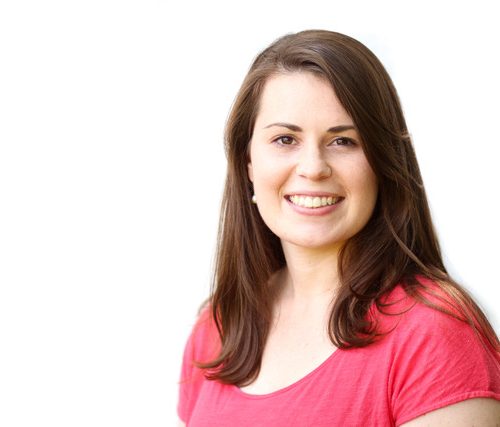
Rachel Lamb
ScholarRachel L. Lamb is a University Flagship Fellow, Harvey Fellow, and PhD Candidate in Geographical Sciences at the University of Maryland, College Park (UMD). She also holds a Master of Public Policy and Master of Science in Sustainable Development and Conservation Biology from UMD. Rachel has worked foRr numerous agencies and organizations, including the Texas Commission on Environmental Quality, A Rocha Peru, National Socio-Ecological Synthesis Research Center (SESYNC), Society for Conservation Biology, and the U.S. Environmental Protection Agency. Her current work focuses on the socio-economic applications of NASA Carbon Monitoring System science to advance climate-smart land-use with benefits for biodiversity. During the summers, she teaches courses on environmental law and policy and land resources policy at the Au Sable Institute of Environmental Studies as an Assistant Professor. Rachel is also a Senior Advisor to Young Evangelicals for Climate Action (Y.E.C.A.). She was a founding member of the organization, serving six years on the national Steering Committee, and one year as the National Organizer and Spokesperson. In 2015, Rachel was named a White House Champion of Change by the Obama Administration for her efforts in protecting our environment and communities from the effects of climate change.

Steve Lambert
Co-founder, Center for Artistic ActivismSince co-founding the Center for Artistic Activism, Steve Lambert has worked alongside artists and activists in 20 countries on 4 continents helping them to effect power through creativity and culture. Over the past ten years they have focused on helping artists and activists who want to effect change on issues such as equal access to health care, human rights for sex workers, fighting for safe consumption spaces for people who use drugs, and corruption in the Balkans and West Africa.
As an artist he is known for large scale, public projects that engage new audiences on difficult topics through the social science of comedy, games, theater, and democratic participation. Lambert’s work has been shown both nationally and internationally, from art galleries to protest marches to Times Square, featured in four documentary films, and over two dozen books, and collected by museums and The Library of Congress, Lambert has presented at the United Nations several times. His research is included in a United Nations report on the impact of advertising on cultural rights and form the basis of a book analyzing popular understandings of capitalism.
He is Associate Professor of New Media at SUNY Purchase College.
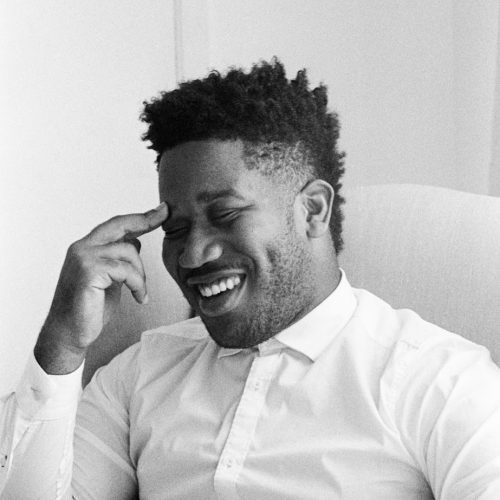
Aundre Larrow
Photographer and ActivistAundre is a Florida native, Brooklyn-based portrait photographer who has spent the last few years shooting editorial and lifestyle content for his clients. He most recently shot the Arctic National Wildlife Refuge with The North Face, NY Fashion week and a portrait project about Amendment 4 in Florida. Throughout the years, he has always pursued the truth that can be found in portraiture and his current work is the next chapter of that.
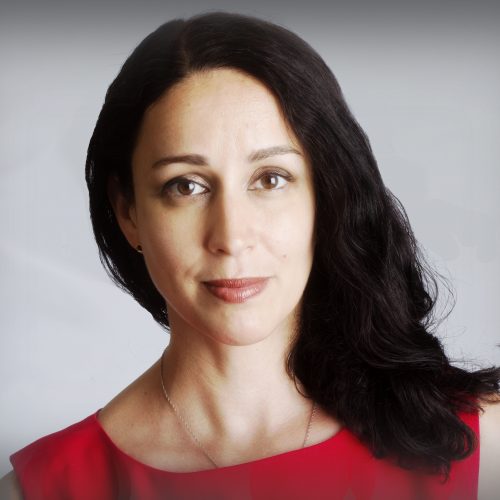
Laura Ligouri
ResearcherLaura Ligouri is the Executive Director and Founder of Mindbridge, a not-for-profit organization connecting psychological and neurobiological insight to non-profit and government sponsored humanitarian efforts. Mindbridge’s Services include research where interdisciplinary methods and procedures are used to design, collect and analyze data answering questions of central importance to human rights organizations and civil society spaces; assessment where psychological and neurobiological tools are used to help evaluate program performance and impact; and education where the latest science is made accessible through workshops, seminars and publications, translating research into meaningful impacts in peoples’ lives. Laura’s interest in the intersection of neuroscience and human rights emerged as a coordinator and researcher at the Saxelab Social Cognitive Neuroscience Laboratory at MIT, where neurobiological research often sought to understand the biological underpinnings of implicit bias, inter-ethnic social conflict, violence and conversely collective empowerment and change. Laura’s work on inter-ethnic social conflict sought to elucidate the bidirectional, mutual constitution of culture and neurobiological processes that give rise to bias, discrimination and violence. To date Laura has written numerous scientific publications and has conducted research in conjunction with the DRAPER Institute, the McGovern Institute, the Defence Advanced Research Projects Agency (DARPA), OSCE Office of Democratic Initiatives and Human Rights, the Alliance of Civilizations Media Fund, among others. Today, Laura is a lecturer in the Psychology and Honors Programs at the University of Southern Maine. For more information on Mindbridge please visit us at www.mindbridgecenter.org.
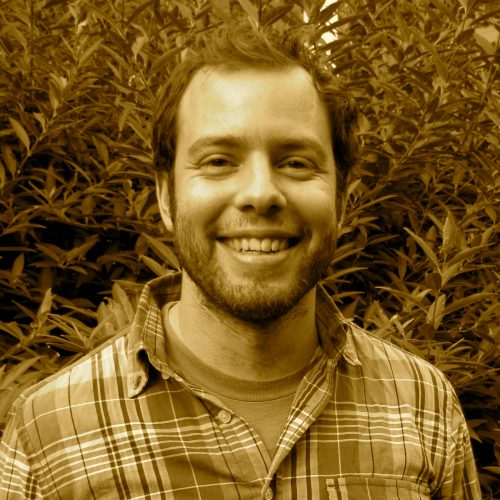
Ezra Markowitz, Ph.D.
ScholarEzra Marowitz, Ph.D. is Associate Professor of Environmental Decision-Making in the Department of Environmental Conservation at the University of Massachusetts Amherst. His research and teaching focus on the intersection of decision-making, persuasive communication, public engagement with science, and environmental sustainability. He is particularly interested and expert in the practical application of behavioral science to improve individuals’ and communities’ environmental decision-making. He is the author of over four dozen peer-reviewed research papers, book chapters, and reports, including the 2015 Connecting on Climate guide to climate change communication. At UMass Amherst, Markowitz teaches courses on Environmental Decision-Making, Conservation Social Science, and Public Engagement and Communication for Scientists. He holds a Ph.D. in Environmental Sciences, Studies & Policy and an M.S. in Psychology from the University of Oregon, as well as a B.A. in Psychology from Vassar College. Markowitz previously held appointments as an Earth Institute Fellow at Columbia University and as a Postdoctoral Research Associate at Princeton University.
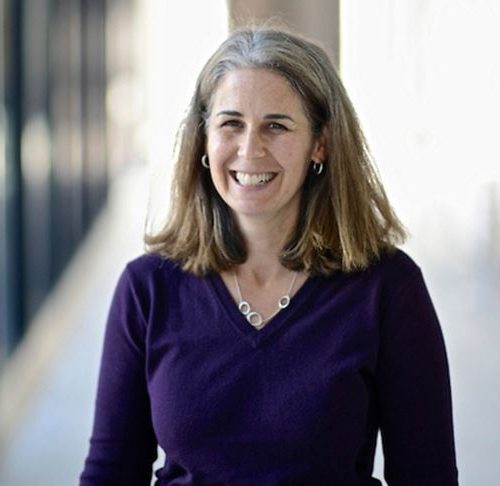
Jennifer Marlon, Ph.D.
Research Prize FinalistJennifer Marlon, Ph.D. is a Research Scientist at the Yale School of Forestry & Environmental Studies and the Yale Program on Climate Change Communication. Her research connects the social and physical dimensions of climate change, particularly in relation to extreme weather such as heatwaves, hurricanes, and drought. She uses social, ecological, and climate data along with surveys and modeling to understand how climate change affects individuals and ecosystems, and how people and ecosystems, in turn, respond to these events. She teaches classes in Environmental Data Science, and Environmental Data Visualization and Communication. Jennifer holds a PhD and MS in Geography from the University of Oregon, and a BS from the University at Albany, State University of New York.
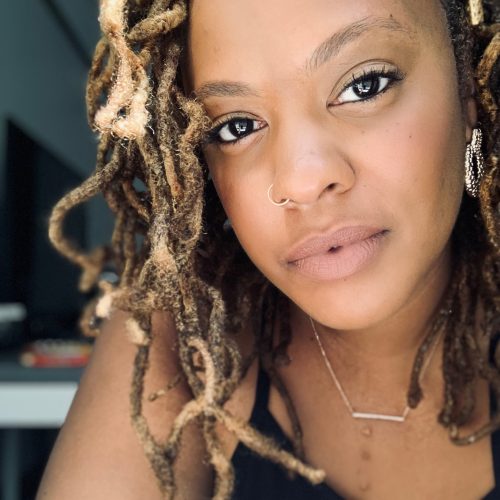
Shanelle Matthews
For more than ten years, Shanelle has partnered with social justice activists, organizations, and campaigns to inspire action through storytelling and communications. From the Sierra Club, to the ACLU, to the Black Lives Matter Global Network, she’s collaborated with political influencers and changemakers to transform complex ideas into persuasive political messaging that inspires people to action.
To strengthen the field of strategic communications, in 2016, Shanelle founded the Radical Communicators Network (RadComms), a go-to hub for cutting edge skills-building, values-aligned political education, and cross-movement collaboration for grassroots social justice communicators. By providing training, professional development, and networking, RadComms serves as a conduit for communicators to disseminate frameworks, information, critical inquiry and analysis into more mainstream and academic communications spaces.
Additionally, to close a gap in progressive media training for impacted communities, Shanelle developed Channel Black, a tailored training program that prepares progressive spokespeople to make critical, real-time interventions on racism, sexism, homophobia, transphobia, and power in the United States through the media.
In the fall of 2017, Shanelle joined The New School, a University in Manhattan as its inaugural Activist-in-Residence. Today, she is faculty there in the social justice scholarship program. She holds a degree in Journalism and New and Online Media from the Manship School of Mass Communications at Louisiana State University.
When she’s not working, Shanelle designs craft cocktails based on her favorite Black feminist books. She lives and plays in Brooklyn with her dog Nala.
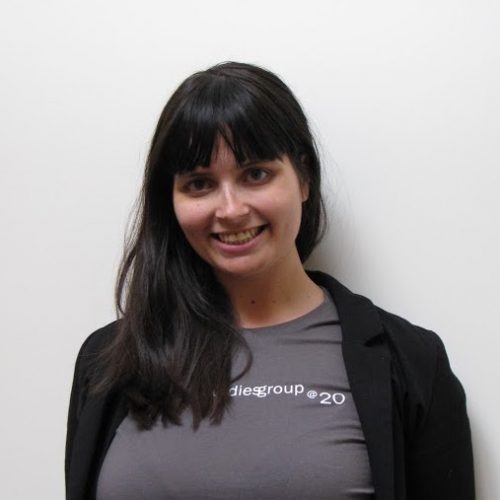
Pamela Mejia
ResearcherPamela Mejia is Head of Research at Berkeley Media Studies Group. BMSG works to build the capacity of advocates and community leaders to change narratives, communicate strategically, and conduct media advocacy to make their communities healthier, safer and more just. To that end, Pamela leads qualitative and quantitative analyses of how the media portray public health and social justice issues, and the implications of those portrayals for effective communication and media engagement. Much of her work centers on challenges and opportunities in changing narratives about preventing and addressing all forms of violence and trauma.
Pamela has presented her work at meetings and conventions around the country and has trained hundreds of advocates and community leaders to communicate strategically about their work and why it matters. Her research has informed communication strategy for the California Partnership to End Domestic Violence and the National Sexual Violence Resource Center, among others, and has been covered by outlets such as National Public Radio, the Huffington Post, and The Guardian.
Pamela holds a master’s degree in biochemistry and another in public health from the University of California at Berkeley. She lives in Oakland, California with her family
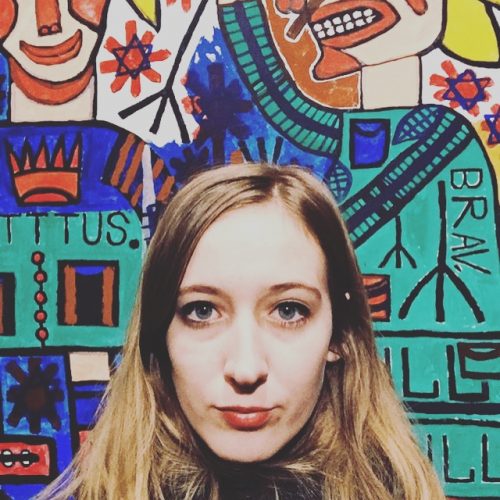
Lauren Parater
CommunicatorLauren’s work sits at the intersection of strategic communications, social innovation, and systems change. She has spent the last five years exploring how science and creativity can be used to communicate complex issues within the humanitarian system. Currently, she leads communication activities at the UN Refugee Agency’s Innovation Service. Her work focuses on using storytelling and innovation as powerful tools to create inclusive futures and assist in solving global challenges.
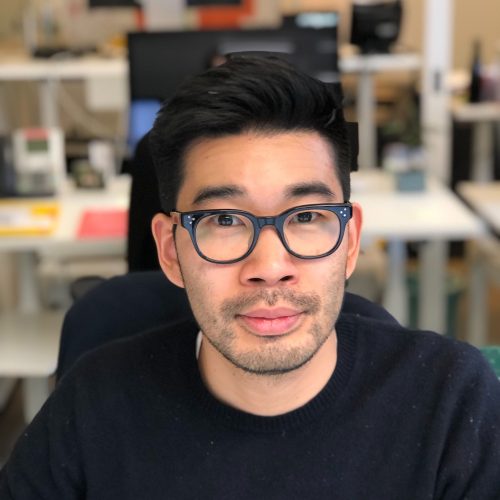
Hans Park
StrategistHans Park is the Strategic Design and Research Manager at the UN Refugee Agency’s Innovation Service. His work is concerned with leading creative direction activities within the team and supporting management of a range of innovation projects, primarily related to Artificial Intelligence, strategic communications, inclusion and diversity
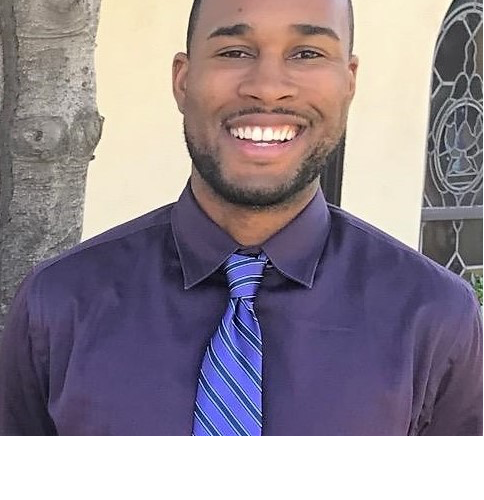
Davin Phoenix
Educator and AuthorDavin Phoenix is a teacher and scholar of race, emotion and political behavior. A first generation college graduate, Davin researches how race interacts with various spheres of U.S. politics to shape the attitudes, emotions and behavior of both everyday people and elites. Past and current work explores how race influences the emergence of anger, pride and hope in response to politics, how protests and media narratives on policing have influenced state legislative activity post-Ferguson, and how religious views shape the policy preferences and political behavior of people of color. His research has appeared in Politics, Groups and Identities, The Journal for the Scientific Study of Religion, and The National Political Science Review. Additionally, his perspective on the intersections of race, emotion and politics have been featured in The New York Times, Vanity Fair, and National Public Radio.
Davin’s book, entitled The Anger Gap: How Race Shapes Emotion in Politics was published in January 2020 with Cambridge University Press. Integrating theories from psychology, political behavior and Black politics, The Anger Gap argues that both the stigmatization of Black anger in the public consciousness and the lack of collective agency felt by African Americans make anger over politics less prevalent and politically potent for Black Americans than White Americans. To test that argument, the book utilizes original experiments, forty years of survey data, and emotion discourse analysis of rhetoric from political elites across the ideological spectrum. The book makes a critical distinction in how emotions translate to behavior across racial groups.
Since 2016, Davin has served as Co-Director of the First Generation First Quarter Challenge, a peer mentorship program providing scaffolding and support to first year social science students seeking to become the first in their families to graduate from a four-year university. Davin is a recipient of multiple recognitions for his teaching and mentoring, including the 2017-18 Dean’s Honoree for Teaching Excellence Award, the Distinguished Lecturer Award from the Black Leadership and Advancement Coalition, and a 2019 UROP Chancellor’s Award for Excellence in Fostering Undergraduate Research.
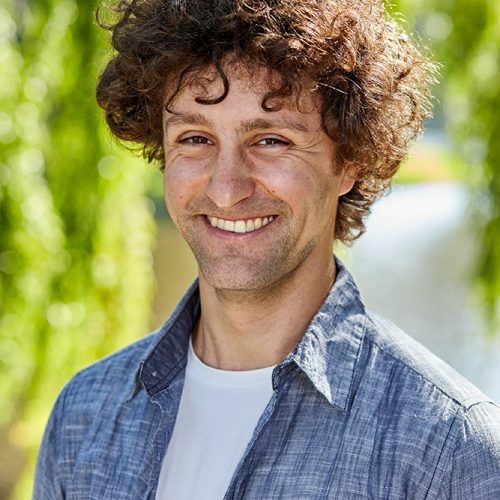
Jon Roozenbeek
Research Prize FinalistJon Roozenbeek is a researcher at the Cambridge Social Decision-Making Lab at the University of Cambridge. His doctoral dissertation focused on media narratives and identity building in conflict zones, particularly eastern Ukraine. Jon’s current research combines online misinformation, inoculation theory and gamification. By leveraging insights from social psychology and behavioral science, his work aims to increase people’s resistance to malicious persuasion strategies. One example of his recent research is the Bad News social impact game, in which players familiarize themselves with common misinformation techniques by walking a mile in the shoes of a fake news creator. Jon’s other research interests include vaccine hesitancy, online extremist recruitment and political polarization.
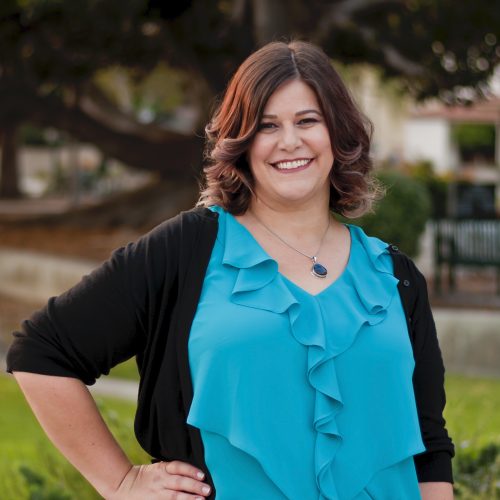
Erica Lynn Rosenthal, Ph.D.
ScholarErica Rosenthal is the Director of Research at the Norman Lear Center, a research and policy center based at USC’s Annenberg School for Communication and Journalism. Her passion is for using media narratives as a vehicle to challenge stereotypes, move people to action, and generate lasting culture change. She oversees a portfolio of research focused on understanding media narratives and studying their impact on audiences’ knowledge, attitudes, and behavior. Topics have included reproductive rights, opioid abuse, immigration, sexual health, gender-based violence, criminal justice, and more. She has a PhD in social psychology and nearly 20 years of experience evaluating the impact of media and communication initiatives on health and public interest issues. Her graduate research examined the barriers emotional messages pose to media literacy, and the central role of trust. She has published on the power of storytelling in both scholarly journals and popular media, and speaks on the social impact of media and storytelling. Her research has been covered in media outlets including The Washington Post, Newsweek, The San Francisco Chronicle, and Pacific Standard.
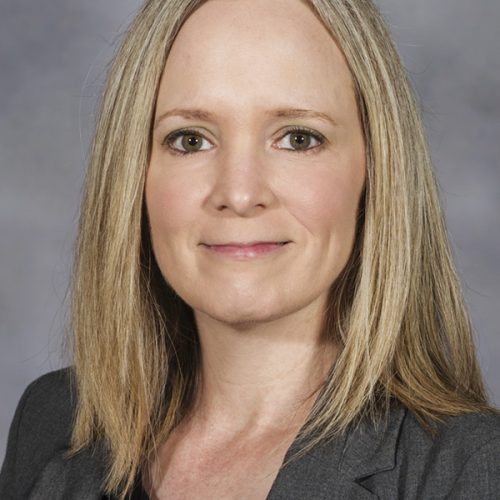
Misty Jones Simpson
ScholarMisty Jones Simpson is an Assistant Professor in the Department of Recording Industry at Middle Tennessee State in Murfreesboro, TN, and received her Bachelor’s Degree in Music Education from Baylor University. Misty studied Music Technology Innovation at Berklee Valencia in Spain, where she received the Outstanding Scholar award and achieved a Master of Music degree. Specializing in MIDI programming, Ableton Live and pop/electronic music, Misty teaches synthesis and music production at MTSU. Misty has spoken and performed at various festivals and conferences including the Music and Entertainment Industry Educator’s Association Summit, MIT’s EMTech España, Madrid Music Days, the King of Spain’s Impulsa Music Forum and the Association for Popular Music Educators Conference. She presented her thesis work at Sonar Music Festival in Barcelona, which was mentioned by Billboard Magazine, and won an award in Prism’s International B-Side Remix competition, mentioned by Sound on Sound Magazine. Most recently, Misty presented her research entitled “How the Drop Changed Pop”at Ableton’s LOOP Summit.
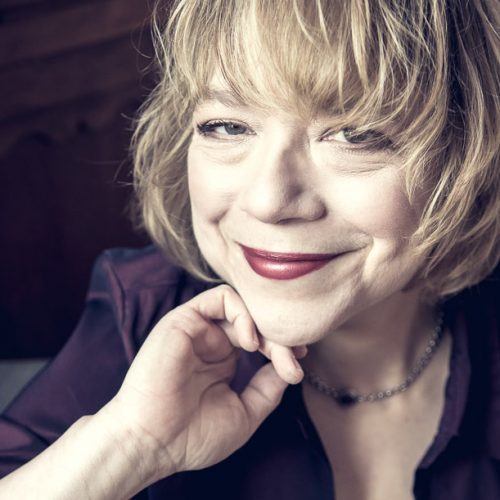
Amy Lynn Smith
Writer and Content StrategistAmy Lynn Smith uses strategic communication and storytelling to catalyze action for the greater good. A writer and content specialist focused on issue advocacy, Amy works with nonprofits, foundations, public interest communication firms such as Spitfire Strategies and others to create imaginative, persuasive messaging for every medium.
An award-winning advocate for healthcare reform, Amy often uses storytelling to demystify complex concepts and empower communities. She uses her strategic communication skills on behalf of people who are blind and visually impaired, helping American Foundation for the Blind and American Printing House for the Blind push for systems change and inclusion. Amy brings more than 25 years of experience to movements in support of various social justice issues, such as helping the UN Refugee Agency (UNHCR) Innovation Service tell more impactful stories about their work with refugees.
Amy frequently applies the knowledge she developed through decades performing in and directing theatre as a public speaker and speaker coach, including for the frank gathering. She is currently pursuing her master’s degree in Mass Communication with a specialization in Public Interest Communications through the University of Florida’s online program.
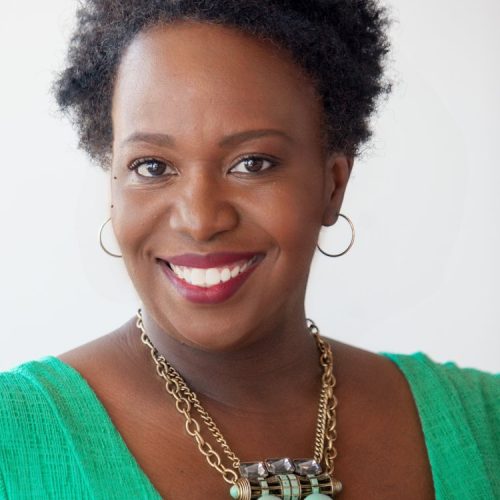
Tracy Sturdivant
Activist, PractitionerTracy Sturdivant is a long-time social justice organizer and innovator who works at the intersection of strategy and creativity. For years, Tracy has pushed the envelope with ideas that ensure our work for social change keeps pace with the changing world around us.
Tracy has been called a “one-woman coalition” for her ability to bring people together to make big ideas happen. As executive director of State Voices, she raised millions of dollars to support state and local organizations engaging Americans in our democracy and pioneered a model that got cutting-edge data and technology into the hands of grassroots organizers. Her experience—from on-the-ground organizing, to training women to run for elected office, to working in philanthropy—has all focused on one goal: making America a place where women, people of color, and young people can thrive.
A frequent speaker within political circles, she has appeared at Netroots Nation, Glassdoor’s Equal Pay Roundtable alongside former Secretary of State Hillary Clinton, as a sought after moderator of panels at conferences like SXSW. Tracy has been a guest on Sirius XM News, NPR, and Women’s Radio Network, has been quoted in outlets like Washington Post, The New York Times, and Vogue, and has been published in places like Essence, Ebony, Huffington Post, and Ms. Magazine.
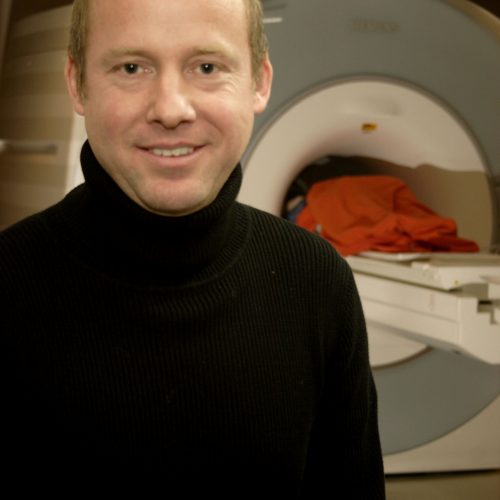
René Weber, M.D., Ph.D.
ScholarRené Weber received his Ph.D. (Dr.rer.nat.) in Psychology from the University of Technology in Berlin, Germany, in 2000, and his M.D. (Dr.rer.medic.) in Psychiatry and Cognitive Neuroscience from the RWTH University in Aachen, Germany. He is a Professor in the Department of Communication at the University of California in Santa Barbara and director of UCSB’s Media Neuroscience Lab (http://medianeuroscience.org). His lab investigates complex cognitive responses to mass communication and mediated narratives with an emphasis on the neural mechanisms of moral conflict, persuasion, media violence, cognitive control, and flow experiences. Current projects focus on attention disorders (ADHD) and media-multitasking and on the analysis of moral narratives and moral conflict in global news and entertainment. He was the first communication scholar to regularly use fMRI to investigate a series of various media effects, from the impact of violence in video games to the effectiveness of anti-drug PSAs. He has published four books and more than 120 journal articles and book chapters (October, 2019). His research has been supported by grants from national scientific foundations in the United States and Germany, as well as through private philanthropies and industry contracts. He is a Fellow of the International Communication Association.
His research focuses on attention disorders and media-multitasking, moral judgment and conflict in narratives, media violence and aggression, persuasion neuroscience, cognitive control and flow experiences.
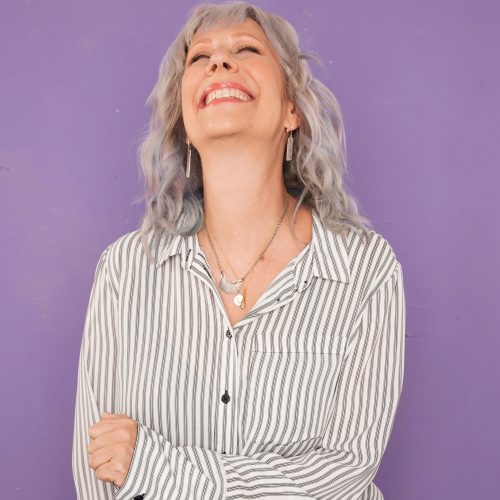
Lizz Winstead
Comedian and ActivistLizz Winstead has built her amazing career hilariously responding to the world. As co-creator and head writer of Comedy Central’s “The Daily Show,” Winstead has forever changed the way people get their news. As co-founder of Air America Radio, she hosted her own show called “Unfiltered”, sharing the mic every morning with the amazing Rachel Maddow and Hip Hop legend, Chuck D. As a stand-up she continues to tour, bringing her rapid response brand of comedy to theatres across the country and in 2014, was initiated into the Harvard Lampoon.
Winstead has now taken her satirical brilliance one step further, combining it with her passion for reproductive rights to form her latest passion project, Abortion Access Front, a non profit organization made up of comedians, writers and producers who create videos that use humor and outrage to expose sexist, anti choice politicians in all 50 state legislatures. AAF also spends 4 months out of the year doing shows across the country and providing support to independent abortion providers and local activists helping them to remove the stigma around abortion.
In addition to performing and her activism, Winstead authored Lizz Free Or Die, a funny and touching book of personal essays, that Elle magazine called, “Sharply witty and iconoclastic”
Winstead’s talents as a comedian and media visionary have been recognized by The New York Times, The Washington Post, and Entertainment Weekly’s 100 Most Creative People issue among other print media. Winstead continues to appear on Comedy Central, HBO’s Real Time With Bill Maher and NPR, as well as her regular commentary on MSNBC.
Winstead has a lot to say about politics and current events, and when she says it, it is always insightful and hilarious!
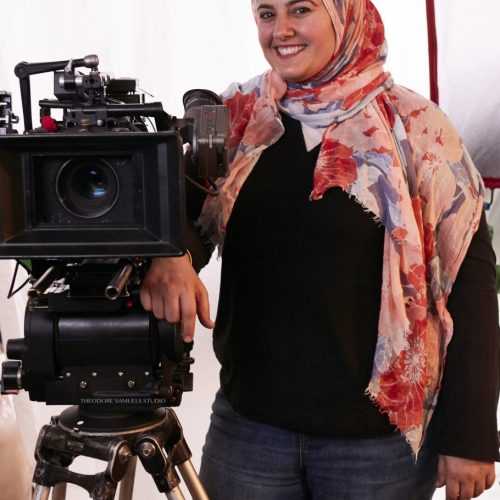
Iman Zawahry
Filmmaker and LecturerZawahry is an accomplished filmmaker whose films have shown in 100 venues worldwide. Her film “Tough Crowd” won a Student Emmy Award and qualified as a finalist in the NBC Comedy Short Cuts. She was a recipient of the coveted Princess Grace Award, which is dedicated to identifying and assisting emerging artists, for her film “UnderCover.”
Zawahry was a consultant on the television shows “The Odyssey” and “The Big C” and recently wrapped her directorial debut feature film. She is currently writing a feature that advanced to the final round of Sundance Writer’s Lab.
In 2014, Zawahry collaborated with the not-for-profit-organization Islamic Scholarship Fund to create the first-ever American-Muslim film grant that helps fund filmmakers who are presenting a positive narrative of Muslims in America.
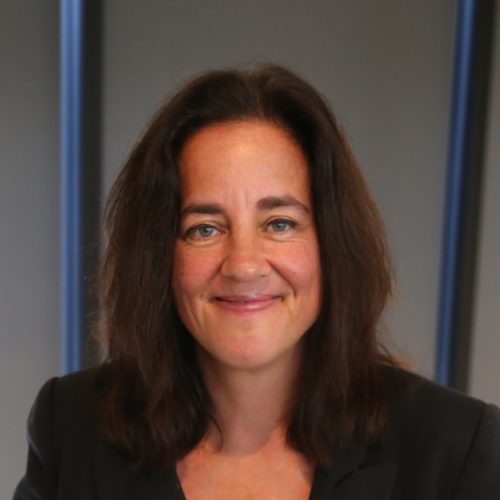
Karin Wahl-Jorgensen
ScholarKarin Wahl-Jorgensen is Professor and Director of Research Development and Environment in the Cardiff School of Journalism, Media and Culture, where she has worked since 2000. She holds a PhD from Stanford University, USA, and an honorary doctorate from Roskilde University, Denmark. Her research focuses on journalism and citizenship, and she has authored or edited ten books. Her recent books include Emotions, Media and Politics (2019, Polity), Digital Citizenship in a Datafied Society (2019, Polity, with Arne Hintz and Lina Dencik), and Handbook of Journalism Studies, 2nd edition (2020, Routledge, co-edited with Thomas Hanitzsch). She has published more than 100 journal articles and book chapters.
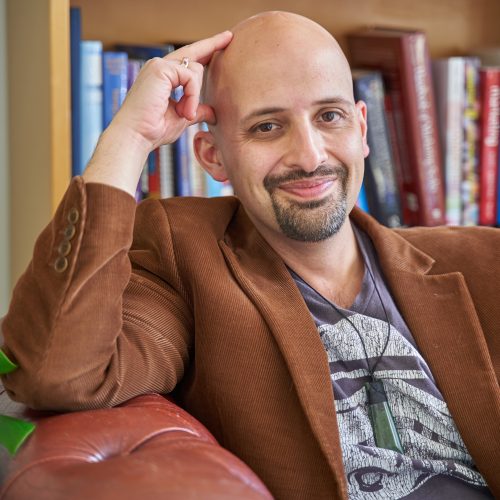
Ekant Veer
ResearcherEkant Veer is a Professor of Marketing and the Associate Dean of Postgraduate Research at the University of Canterbury, New Zealand. Ekant is a multi-award winning teacher and researcher having been named in the Top 40 under 40 Business Professors worldwide, a winner of an Ako Aotearoa Tertiary Teaching Excellence award, a recipient of the University of Canterbury’s Teaching Medal and a 5 times winner of UCSA’s Lecturer of the Year award. His research focuses on the role of marketing in promoting social well-being and understanding how online technologies affect consumer self-expression and identity. He is the director of the UC Business School’s Social Impact Cluster is often called upon to work with various not-for-profit agencies to show how marketing can be used to benefit society and promote wellness. He is a father to two amazing daughters and husband to his wonderful wife, Unicia. When not in the office or working in the community you’ll find him hiking around New Zealand with his camera, singing at the top of his lungs or in the kitchen cooking up a storm.
